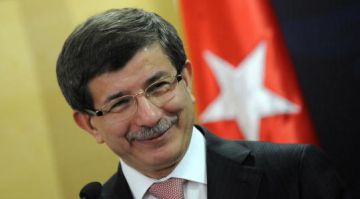TURKEY: DAVUTOGLU'S TO-DO LIST
 Summary
Summary
Following his trip to the United States, Turkish Foreign Minister Ahmet Davutoglu traveled to Azerbaijan April 19, after which he will travel to Iran. Though Ankara and Washington are pursuing a fresh diplomatic attempt to simultaneously restore Turkish-Armenian ties and resolve territorial differences between Azerbaijan and Armenia, they will continue to face heavy resistance from both Baku and Moscow in their efforts. Meanwhile, Turkey will use the Armenian-Azerbaijan dispute to involve Iran in another regional affair, thereby showing Ankara’s capacity as a potential mediator between the United States and Iran.
Analysis
Turkish Foreign Minister Ahmet Davutoglu traveled to Azerbaijan April 19 after departing from Washington, where he and Turkish Prime Minister Recep Tayyip Erdogan met with U.S. officials to discuss the contentious issues of Turkish-Armenian diplomatic normalization and a resolution to the Nagorno-Karabakh territorial dispute between Armenia and Azerbaijan.
During Erdogan’s stay, U.S. President Barack Obama was firm with Erdogan in expressing Washington’s desire for Turkey to move forward in signing the parliamentary protocols to reopen Turkey’s border with Armenia. A stronger Turkish presence in the Caucasus would, in the United States’ view, pose a counter to Russian influence in the region and potentially expands trade and transit from the Middle East to Central Asia without having to traverse Russian territory — a growing strategic need for the United States as it seeks to militarily extricate itself from Iraq and transfer resources to Afghanistan.
Turkey, however, has demanded in return that the United States, along with France and Russia, first do their part within the Minsk Group to pressure Armenia into conceding on Nagorno-Karabakh. Only then, Turkey argues, can it effectively deal with Azerbaijan, which has been alienated by the Turkish-Armenian negotiations and has consequently grown closer to Russia, putting Turkey’s and Western Europe’s energy diversification plans at risk. According to STRATFOR sources in Turkey, Erdogan and Obama have come up with a preliminary proposal that would entail Armenia publicly outlining a road map to withdraw from a certain mountainous section of Nagorno-Karabakh. That way, Turkey can distance itself from the Minsk Group’s efforts and show at least some progress on the Nagorno-Karabakh issue to move forward with the Armenia protocols.
It is thus up to Turkey to convince Azerbaijan to go along with this proposal (hence Davutoglu’s trip to Baku) and up to the United States to convince Armenia to make this public concession. Success is not assured in either effort, particularly given the history of past road maps that have ended in stalemate and as Russia, which has significant influence over Armenia and growing influence over Azerbaijan, will be expected to scuttle this latest proposal.
Indeed, Armenian President Serzh Sarkisian has been called up for a visit to Moscow April 20 to discuss the latest U.S.-Turkish push on the protocols. STRATFOR sources in Armenia say Russia is urging Sarkisian to push for legislation that would allow the president to withdraw from an agreement with Turkey at any time without parliamentary approval. Such a move would allow Russia more freedom to hamper the talks when the need arises.
Azerbaijan, meanwhile, is already angry at the United States for not including it in the Nuclear Security Summit in Washington on April 12, where Armenian, Turkish and U.S. officials met on the sidelines to discuss this issue. Baku’s anger could be seen in Azerbaijan’s cancellation of joint military drills with the United States planned for May.
While the United States has been firm with Turkey on the issue of Armenia and Azerbaijan, Turkey has been just as firm with the United States in defending Iran. Davutoglu is scheduled to leave Baku for Tehran to inform the Iranian leadership of the results of his meetings in Washington. In defiance of the U.S.-hosted Nuclear Security Summit, Iran hosted its own nuclear summit in Tehran April 17-18 and is feeling confident about its ability to deflect U.S. pressure on its nuclear activities.
For Turkey to demonstrate that it is playing a useful mediator role in this conflict, it needs to show it can carry some influence with Iran. For this reason, Turkey likely will entertain Iran’s efforts to get involved in other regional disputes, such as the Nagorno-Karabakh conflict, as a way of recognizing Iran’s regional clout to earn Tehran’s trust in the ongoing nuclear negotiations.
Moreover, involving Iran in the negotiations is a way to further dilute Turkey’s responsibility over the Nagorno-Karabakh affair and provide Ankara with more room to maneuver in its negotiations with Armenia. To this end, Iranian Foreign Minister Manouchehr Mottaki announced April 19 that Iran will host a meeting among foreign ministers from Armenia, Azerbaijan and Iran. Iran does not carry nearly as much influence in this dispute as Turkey and Russia, but it is another foreign policy arena for Tehran to project its influence with Turkey’s endorsement.
Return
